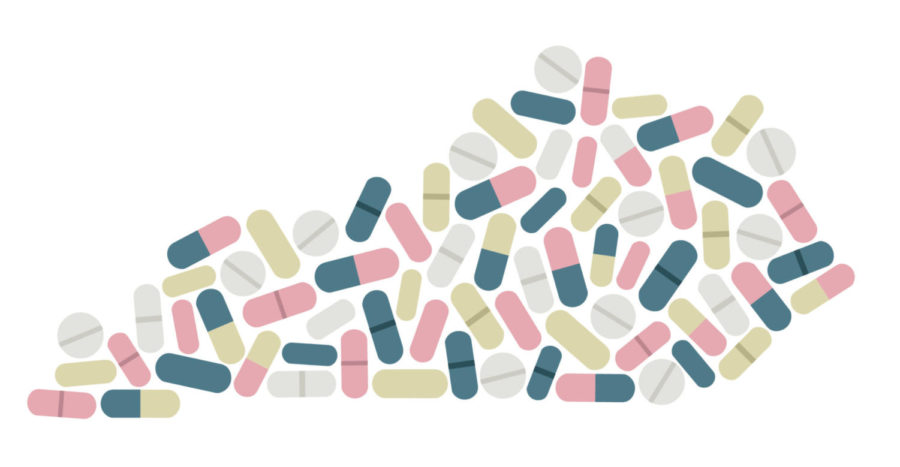Donation to UK PATHways Program will allow expansion of opioid treatment, research
May 14, 2018
As the opioid crisis in America continues to be a rising issue, UK has taken steps to attempt to treat and prevent the disease.
On Tuesday, May 8, members of UK’s administration announced in a press conference that UK would be receiving $4.9 million to expand the Perinatal Assistance and Treatment Home program in rural Kentucky.
The money was donated to UK’s PATHways Program from the Patient-Centered Outcomes Research Institute. According to UK Vice President for Research Lisa Cassis, PCORI has donated more than $18 million to UK for research over the last four years.
“An independent and non-profit organization authorized by Congress in 2010, PCORI funds research that will provide patients and clinicians with evidence-based information to make better informed healthcare decisions,” Cassis said in the press conference.
According to Cassis, UK has conducted $24 million worth of research annually over the last four years about substance abuse and addiction.
“This PCORI support is for the UK PATHways Program,” Cassis said. “A multi-disciplinary, comprehensive treatment program for pregnant and early parenting women who have opioid addiction.”
This $4.9 million would allow the UK research center and the PATHways Program to expand its research and treatment capabilities to smaller, rural towns in Kentucky, expanding outside of Lexington and the UK community.
According to Director of the PATHways Program Dr. Agatha Critchfield, the program is only available at this time at the main healthcare campus in Lexington, despite eligible patients being located in surrounding Kentucky communities.
“This contract to offer the PATHways Program in rural communities and further research its impact is great news and a great opportunity in dealing with this very difficult disease,” said UK Executive Vice President for Health Affairs Dr. Mark F. Newman in the press conference.
The PATHways Program was founded in 2014 to find ways to treat and prevent both opioid addiction in pregnant and new mothers.
“This program was developed in concert between the Department of Obstetrics and Gynecology and the College of Nursing,” Critchfield said. “But it includes, importantly, members from Addiction Medicine, Neonatology, Family Medicine, Counseling, Social Work and Peer Support.”
PATHways contains many components of both research and treatment works.
According to Critchfield, main components of the PATHways program include: medication assisted therapy, substance abuse counseling sessions, prenatal and parenting group sessions led by perinatal nurse facilitators and peer support specialists, antepartum consultations with Maternal Fetal Medicine, Addiction Medicine and Neonatology, inpatient support through delivery and treatment availability up to or beyond two years postpartum.
The program also conducts research to find ways to prevent and treat Neonatal Abstinence Syndrome. NAS is a disease caused by a newborn’s sudden discontinuation of a drug that was used during the mother’s pregnancy.
“From 2000 to 2016, the number of babies born with Neonatal Abstinence Syndrome has soared from 17 to nearly 1,200,” UK President Eli Capilouto said. “PATHways was launched in 2014 to combat this devastating statistic.”
According to Capilouto, the state of Kentucky ranks third in the country for overdose deaths.
“Families residing in Kentucky’s rural communities disproportionately shoulder this burden,” Capilouto said.
UK’s research and medical team treats addiction as a disease and intends to continue the PATHways Program to continue research and treatment initiatives to prevent it.
“Addiction is like any other disease,” Capilouto said. “I stress disease of the body of society. It can afflict anyone. It knows no gender, race, body or biology. If someone does not personally struggle with this, I know many who know someone who does.”




























































































































































